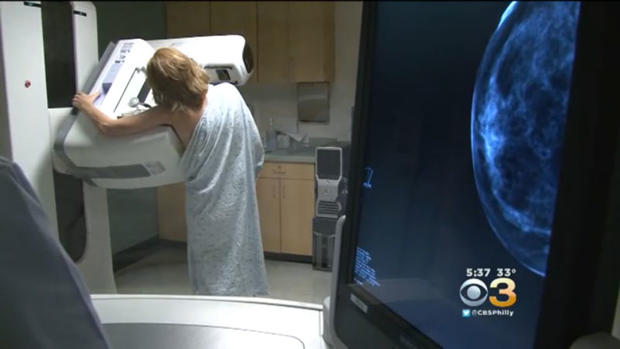'It Saved My Life': Research Finds Mammograms, Advances In Treatment Saved More Than 500,000 Women
Follow CBSPHILLY Facebook | Twitter
PHILADELPHIA (CBS) — New research released Monday said more than 500,000 women's lives have been saved because of mammograms and advances in treatment. It's about finding breast cancer early and all of the new and the improved treatments combining to save lives.
While there has been a slight increase in the number of women being diagnosed with breast cancer, the study showed death rates are declining. New research in Cancer, a peer-reviewed scientific journal, found that over the past 30 years, more than a half-million breast cancer deaths have been prevented.
"The amount of lives being saved is absolutely remarkable," said Dr. Freya Schnabel, a breast surgeon.
Niki Kollia, 43, was diagnosed with stage one breast cancer one year ago after a mammogram detected tiny calcium deposits.
Kollia said that if it wasn't for her annual screenings, the cancer may not have been picked up so early.
"I didn't have a family history," she said. "I don't drink, I don't smoke. I work out. My lifestyle is relatively healthy."
The advances include better understanding of the science behind breast cancer and more targeted treatments.
But when to start breast cancer screening and how often has become a source of debate.
The American Cancer Society suggests women 40 to 44 years old should have a choice to start annual mammograms. Women between 45 and 54 should be screened every year.
"Screening plays a large role in early detection of breast cancer," Schnabel said, "to allow the patients who are diagnosed early to have better and more favorable treatment methods."
Because of the early detection, Kollia avoided chemotherapy. She chose to have a double mastectomy and reconstruction surgery. Now, she shares her story with other women.
"Look," she said, "in my case, it saved my life. It could do the same thing for you."
It's estimated that only about half of U.S. women over 40 years old receive regular mammography screenings, which doctors say is unfortunate and potentially dangerous. Women with a family history of breast cancer or other risk factors are often advised to be screened before 40.




